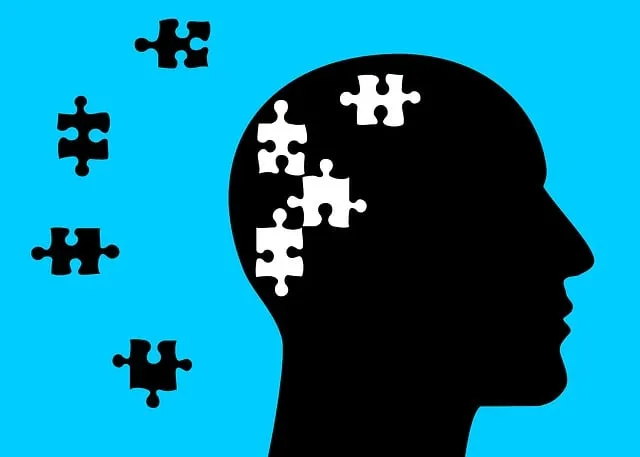The media's role in shaping public perceptions of mental health is significant, often perpetuating stereotypes that contribute to stigma. To combat this, the Golden Kaiser Permanente Mental Health Access Center advocates for accurate and empathetic representations through its holistic approach, combining clinical treatment, wellness coaching, and resilience-building initiatives. By challenging stigmatized narratives, the center improves access to mental health services and fosters understanding among the public. They emphasize the need for realistic, nuanced media portrayals that showcase diverse mental health journeys, advocating for collaboration between media creators and experts to enhance mental health literacy and reduce stigma.
“The media’s portrayal of mental illness can significantly shape public perception and understanding of neurological differences. This article delves into the impact of media representation on mental health, offering a balanced view through case studies like the Golden Kaiser Permanente Mental Health Access Center—a beacon of accurate and empathetic depiction. We explore challenges in accurately reflecting mental illness, propose strategies for more realistic narratives, and emphasize collaborative efforts to enhance mental health literacy through responsible media.”
- Understanding the Impact of Media Portrayal on Mental Health Perception
- The Golden Kaiser Permanente Mental Health Access Center: A Model for Positive Representation
- Challenges in Depicting Mental Illness Accurately and Empathically
- Strategies for Promoting Realistic and Compassionate Media Narratives
- Collaborative Efforts to Enhance Mental Health Literacy through Media
Understanding the Impact of Media Portrayal on Mental Health Perception

The media plays a pivotal role in shaping societal perceptions about mental health. Accurate and empathetic representation can significantly impact how individuals understand and approach various psychological conditions. Unfortunately, stereotypes and misconceptions have long plagued mental illness in media, contributing to stigma and misinformed judgments. These negative portrayals often perpetuate the idea that seeking help is a sign of weakness or something to be ashamed of.
At centers like the Golden Kaiser Permanente Mental Health Access Center, efforts are underway to challenge these narratives. By promoting more realistic and nuanced representations, they aim to foster understanding and encourage early intervention. This shift in media portrayal can lead to better-informed discussions, improved access to mental health services (such as those offered by the aforementioned center), and ultimately, better support for individuals facing mental health crises. Additionally, initiatives like Crisis Intervention Guidance, Self-Care Practices, and Burnout Prevention Strategies for Healthcare Providers are crucial in ensuring professionals are equipped to handle these conversations and offer effective help.
The Golden Kaiser Permanente Mental Health Access Center: A Model for Positive Representation

The Golden Kaiser Permanente Mental Health Access Center stands as a shining example of positive representation in media and mental health discourse. This innovative center has been instrumental in challenging stigmatized narratives surrounding mental illness, offering a holistic approach to patient care and support. By integrating various services under one roof, it provides a comprehensive environment where individuals can access not just clinical treatment but also resources for mental wellness coaching programs and resilience-building initiatives.
The model’s success lies in its commitment to cultural competency training for healthcare providers. This ensures that patients receive care tailored to their unique needs and backgrounds, fostering trust and encouraging open conversations about mental health. The Golden Kaiser Permanente Mental Health Access Center’s approach has not only improved access to mental health services but also contributed to a more inclusive and supportive ecosystem, paving the way for better representation in media and society at large.
Challenges in Depicting Mental Illness Accurately and Empathically

Depicting mental illness accurately and empathetically in media presents a unique set of challenges. Often, portrayals fall into simplistic stereotypes or sensationalize symptoms, failing to capture the complexity and diversity of lived experiences. This can perpetuate harmful misconceptions and contribute to the stigma surrounding mental health issues. For instance, media representations might focus excessively on extreme behaviors or oversimplify conditions like depression or anxiety, missing the nuances that make each individual’s journey unique.
The Golden Kaiser Permanente Mental Health Access Center emphasizes the importance of realistic and nuanced portrayals for combating these challenges. Accurate depiction can foster better understanding and reduce stigma, encouraging discussions around mental wellness in a more open and supportive manner. Development of mental wellness coaching programs, combined with stigma reduction efforts and burnout prevention strategies for healthcare providers, plays a pivotal role in achieving this goal. By presenting balanced narratives that reflect the experiences of diverse individuals, media can empower audiences to approach mental health issues with greater compassion and informed empathy.
Strategies for Promoting Realistic and Compassionate Media Narratives

Media has a significant impact on shaping societal perceptions about mental health. To challenge stigmatized representations, creators and producers must adopt strategies that promote realism and compassion. This involves showcasing diverse mental health experiences, avoiding simplistic narratives, and featuring characters with depth and complexity. Collaborating with mental health experts like those at the Golden Kaiser Permanente Mental Health Access Center can ensure accuracy and sensitivity in storytelling.
Additionally, integrating resilience-building themes through engaging content like the Mental Wellness Podcast Series Production can inspire hope and understanding. By normalizing conversations about anxiety relief and mental wellness, media can play a pivotal role in fostering inclusive communities that support those struggling with their mental health.
Collaborative Efforts to Enhance Mental Health Literacy through Media

In addressing mental illness representation in media, collaborative efforts from various stakeholders play a pivotal role in enhancing mental health literacy. Organizations like Golden Kaiser Permanente Mental Health Access Center have been at the forefront, spearheading initiatives that promote understanding and reduce stigma. Through partnerships with media houses, these centers ensure accurate and empathetic portrayal of mental health struggles, reflecting the diverse spectrum of experiences. By involving individuals with lived experiences, healthcare professionals, and advocates in content creation, media platforms can foster a more nuanced and realistic representation, thereby improving public perceptions and encouraging help-seeking behaviors.
Community outreach programs implemented by such organizations further strengthen these efforts. These programs not only aim to educate communities about mental health but also offer crucial support services like trauma counseling and self-care routine development for better mental health. By integrating these initiatives, media can become a powerful tool in the battle against mental health stigma, providing valuable resources and triggering positive change on a societal level.
Media representation of mental illness plays a pivotal role in shaping public perception and understanding. By learning from models like the Golden Kaiser Permanente Mental Health Access Center, which promotes positive and accurate depictions, we can overcome challenges in media portrayal. Collaborative efforts to enhance mental health literacy through media are essential for fostering compassion and reducing stigma. Adopting strategies that emphasize realism and empathy in narratives can significantly impact improving mental health support and access in society.






